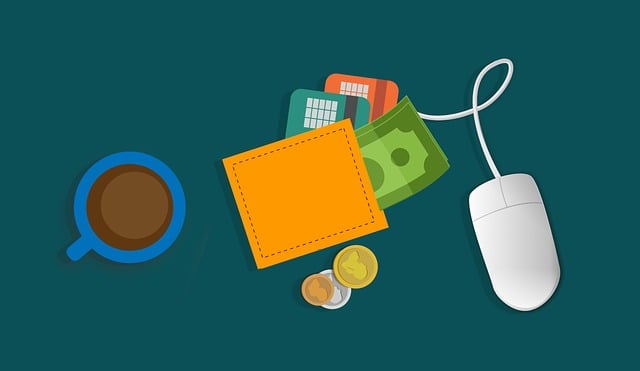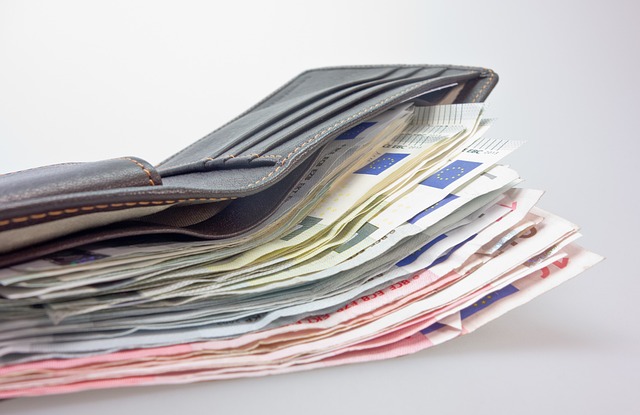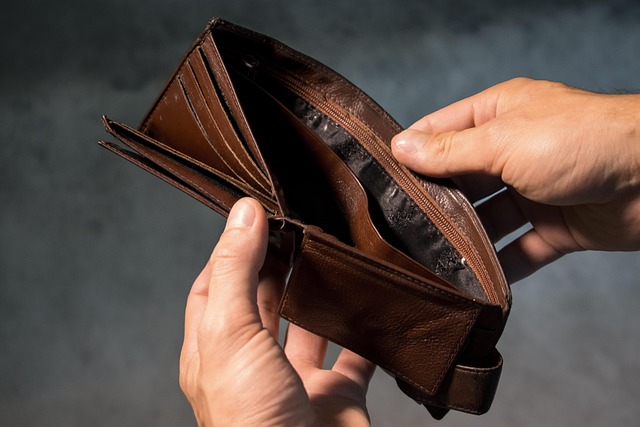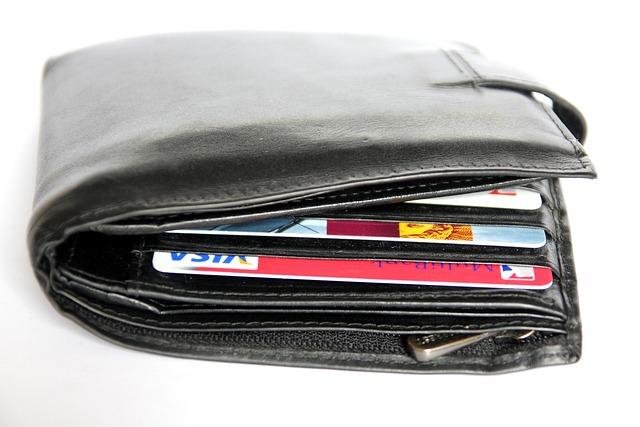Understanding Crypto Wallets: The Key to Safe Cryptocurrency Storage
Author: Jameson Richman Expert
Published On: 2025-05-13
Prepared by Jameson Richman and our team of experts with over a decade of experience in cryptocurrency and digital asset analysis. Learn more about us.
A crypto wallet is essential for anyone who wants to invest or transact in cryptocurrency. It’s not just a tool; it’s a secure digital storage space that allows you to keep your cryptocurrencies safe from theft, hacking, and loss. In this comprehensive guide, we will explore the different types of crypto wallets, how they work, their pros and cons, and tips for choosing the right one. We'll also discuss the importance of security and provide links to trusted exchanges where you can manage your cryptocurrencies effectively.
When you invest in cryptocurrencies, you need a reliable method of storing them. A crypto wallet acts as your bank account for digital assets, allowing you to send, receive, and manage your crypto holdings. There are various types of wallets available, including hardware wallets, software wallets, and paper wallets, each with its own unique features and security measures.

What is a Crypto Wallet?
A crypto wallet is a digital tool that allows users to store and manage their cryptocurrencies. Unlike traditional wallets that hold physical cash, crypto wallets store your public and private keys. The public key is like your bank account number; it’s shared with others to receive funds. The private key is your password; it's crucial for accessing your funds and should never be shared. The best crypto wallets provide a seamless user experience while maintaining a high level of security.
Crypto wallets do not actually hold the cryptocurrency itself; instead, they store the keys that give you access to your crypto holdings on the blockchain. Each cryptocurrency operates on its own blockchain, and the wallet interacts with these blockchains to manage your assets. This means that when you send or receive cryptocurrency, you are essentially authorizing a transaction on the blockchain using your keys.
Types of Crypto Wallets
There are several types of crypto wallets to choose from, each catering to different needs and preferences:
1. Hardware Wallets
Hardware wallets are physical devices that store your cryptocurrencies offline. They are considered one of the safest options for storing crypto because they are immune to online hacking attempts. Popular hardware wallets include the Ledger Nano S and the Trezor Model T. These wallets require a connection to a computer or mobile device to access your funds but provide excellent security against malware and phishing attacks. Additionally, they often come with features such as secure chip technology and firmware updates to combat emerging threats. Hardware wallets are especially recommended for long-term investors or those holding significant amounts of cryptocurrency.
2. Software Wallets
Software wallets can be further divided into desktop, mobile, and web wallets. Desktop wallets are installed on your computer, providing a higher level of security than web wallets since they are not always online. Popular examples include Electrum for Bitcoin and Exodus for multi-currency support. Mobile wallets are designed for smartphones, making it easy to make transactions on the go, with some offering additional features like QR code scanning for quick payments. Web wallets, on the other hand, are accessible through a web browser but are less secure as they are always online, making them vulnerable to hacking. Examples include Coinbase and Binance. It is crucial to assess the security of software wallets, as their convenience often comes with increased risk.
3. Paper Wallets
A paper wallet is a physical printout of your public and private keys. It is an offline method of storing cryptocurrencies and can be very secure if generated and stored properly. However, if you lose the paper or it gets damaged, you could lose access to your funds permanently. It's important to generate a paper wallet using a secure, offline method, such as WalletGenerator, and store it in a safe place to ensure its longevity. Be mindful of potential threats like fire or water damage, and consider using a safe deposit box for added protection. Paper wallets are particularly suitable for users who prefer to hold cryptocurrencies long-term without interacting with the market frequently.
Choosing the Right Crypto Wallet
Selecting the right crypto wallet depends on your needs and usage patterns. If you’re a frequent trader, a software wallet may be more convenient due to its accessibility. For long-term storage, consider using a hardware wallet for added security. Always ensure that whichever wallet you choose has strong security features, such as two-factor authentication, backup options, and a user-friendly interface. Additionally, look for wallets that support a wide range of cryptocurrencies to accommodate any future investments. Reading user reviews and doing thorough research can also help you make an informed decision. It’s also wise to assess the reputation of the wallet provider and check for any past security incidents.

Security Features to Look For
When choosing a crypto wallet, security should be your top priority. Here are some features to consider:
- Two-Factor Authentication (2FA): Adds an extra layer of security by requiring a second form of identification, such as a text message or authentication app.
- Backup and Recovery Options: Ensure you can recover your wallet in case of loss or theft, such as seed phrases or recovery keys.
- Multi-Signature Support: Requires multiple keys to authorize a transaction, enhancing security, especially for shared accounts.
- Regular Software Updates: A wallet that is frequently updated is less vulnerable to security breaches and bugs.
- Open-Source Code: Wallets with open-source code can be audited by the community for potential security vulnerabilities.
- Cold Storage Capability: The ability to store assets offline to minimize exposure to online threats.
- User-Friendly Interface: A wallet with an intuitive design makes it easier for beginners to navigate and manage their assets.
Best Crypto Wallets of 2025
As we look into the future, several crypto wallets are emerging as frontrunners in terms of security and user-friendliness. For a detailed breakdown of the hottest crypto wallets of 2025, you can check out this resource: 2025's Hottest Crypto Wallets Revealed. This article highlights wallets that offer innovative features and robust security protocols, making them perfect for both beginners and seasoned investors. Features like biometric authentication and integration with decentralized finance (DeFi) applications are becoming standard in top wallets, providing a more seamless and secure user experience. Furthermore, wallets are increasingly incorporating tools for managing NFTs and other digital assets, reflecting the evolving nature of the cryptocurrency ecosystem.
Using Crypto Exchanges for Wallet Services
While many users prefer to store their cryptocurrencies in dedicated wallets, some exchanges offer built-in wallet services. Exchanges like Binance, MEXC, Bitget, and Bybit provide wallet services that integrate with their trading platforms. This can be convenient for those who actively trade cryptocurrencies, allowing for immediate access to funds for trading, but it’s important to understand the risks associated with keeping funds on an exchange, such as potential hacks and withdrawal limitations. Utilizing strong passwords and enabling additional security measures can help mitigate these risks. It is also advisable to regularly monitor your account activity for any suspicious transactions.

Advantages and Disadvantages of Exchange Wallets
Exchange wallets offer several advantages, including convenience and ease of access to trading features. However, they also come with significant risks, such as exposure to hacking attempts and the potential for the exchange to freeze your funds during withdrawal or trading disputes. For long-term storage, it's generally advisable to transfer your assets to a more secure wallet, especially if you are not actively trading. Regularly evaluating the security measures of your chosen exchange can help mitigate some risks associated with exchange wallets. It's also advisable to withdraw your funds to a private wallet if you are not planning to trade frequently. Moreover, consider diversifying your holdings across multiple wallets to spread out risk.
Understanding Crypto Signals
Crypto signals can help you make informed trading decisions. These signals are generated based on market analysis, trading patterns, and expert predictions, often provided through subscription services or trading platforms. For an in-depth look at the role of crypto signals in trading, you might find this article beneficial: Unlocking the Potential of Crypto Signals in 2025. This resource delves into how traders can leverage signals to maximize their investment strategies and discusses different types of signals such as buy/sell alerts, market trend analyses, and sentiment analysis. Understanding how to interpret these signals can significantly enhance your trading effectiveness. Additionally, employing risk management strategies alongside signals can lead to more disciplined trading practices.
The Future of Crypto Wallets
The landscape of crypto wallets is continuously evolving. As technology advances, we can expect to see improvements in security features, user experience, and integration with other financial services. Innovations like biometric security measures, such as fingerprint or facial recognition, and AI-driven trading assistants are already making waves in the market. Additionally, the rise of decentralized wallets and self-custody solutions are shifting the paradigm of cryptocurrency ownership. Staying updated with these trends will ensure you make the best choices for your investments while safeguarding your assets. As regulations around cryptocurrencies become more defined, compliance features in wallets may also become a significant consideration for users. Furthermore, the integration of wallets with social media platforms and online marketplaces is likely to enhance usability and accessibility for everyday users.

Conclusion
In conclusion, understanding crypto wallets is crucial for anyone looking to engage in the cryptocurrency market. By choosing the right wallet and implementing strong security measures, you can protect your digital assets and enhance your trading experience. Remember to stay informed about emerging trends and technologies in the crypto space to keep your investments secure. For further insights into maximizing your trading potential, explore the world of crypto trading signals, which can provide valuable guidance in your investment journey. Whether you are a beginner or an experienced trader, the right wallet will empower you to navigate the crypto landscape with confidence. As the crypto ecosystem continues to expand, the need for robust security and user-friendly interfaces will only grow, making the choice of a crypto wallet more critical than ever.